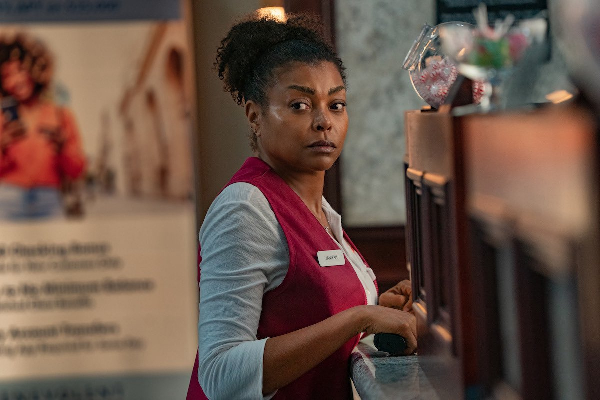Ghanaian TV Station Sparks Outrage by Airing Tyler Perry’s ‘Straw’ Days After Netflix Release

A local Ghanaian television station has ignited a firestorm of controversy and outrage on social media after a viral video revealed it was airing “Straw,” a recently released movie by renowned American filmmaker Tyler Perry. The film, starring Taraji P. Henson, premiered exclusively on the popular video streaming service Netflix on June 6, 2025, to widespread positive reviews and significant social media discourse.
Barely days after its highly anticipated global release, videos began circulating on Facebook, showing the Ghanaian TV station broadcasting the Netflix original. This immediate and unauthorized broadcast led to a torrent of condemnation from Ghanaian netizens, who swiftly accused the station of airing copyrighted content without permission.
The outrage among online commentators is particularly potent given recent tensions in the West African film industry. These concerns echo similar accusations from Nigerian movie producers who have long chastised Ghanaian TV stations for airing their films, sometimes mere days after their cinematic or streaming debuts, without proper licensing or consent. This ongoing issue highlights a broader challenge of intellectual property rights and content piracy within the region’s broadcasting landscape.
The gravity of the situation was recently underscored in April 2025, when Nigerian producer Bimbo Ademoye publicly aired similar accusations against Ghanaian stations. In response to such concerns, the National Film Authority (NFA) of Ghana, under the leadership of Kafui Danku-Pitcher, issued a stern warning to all television stations. The NFA explicitly cautioned broadcasters to refrain from such unauthorized activities, threatening severe sanctions for any infractions. This official warning emphasized the legal and ethical ramifications of airing copyrighted material without the necessary licenses.
With this latest development involving Tyler Perry’s “Straw,” many Ghanaians on social media have expressed profound disappointment and outrage, condemning the station’s actions as a blatant disregard for intellectual property laws and international broadcasting ethics. Critics argue that such practices not only harm content creators but also tarnish Ghana’s reputation on the global stage.
However, a segment of social media users has come to the defense of the television station. These individuals argue that local stations are in constant need of compelling content to attract and retain their audiences, implicitly suggesting that limited budgets or access to licensing agreements might drive such decisions. This perspective, while attempting to rationalize the actions, does not negate the legal and ethical breaches involved.
Adding a unique and somewhat humorous dimension to the controversy, Ghanaian socialite Afia Schwarzenegger shared a video on her platforms. In the video, she was seen sending a voice note directly to Tyler Perry, humorously but pointedly reporting the Ghanaian stations for their alleged piracy. This personal appeal from a prominent figure to the filmmaker himself brought an additional layer of public attention and debate to the unfolding saga. The incident serves as a stark reminder of the ongoing challenges faced by content creators in protecting their intellectual property in the digital age, especially in regions where enforcement of copyright laws may face obstacles.
See the videos below:
Source: Thepressradio.com





